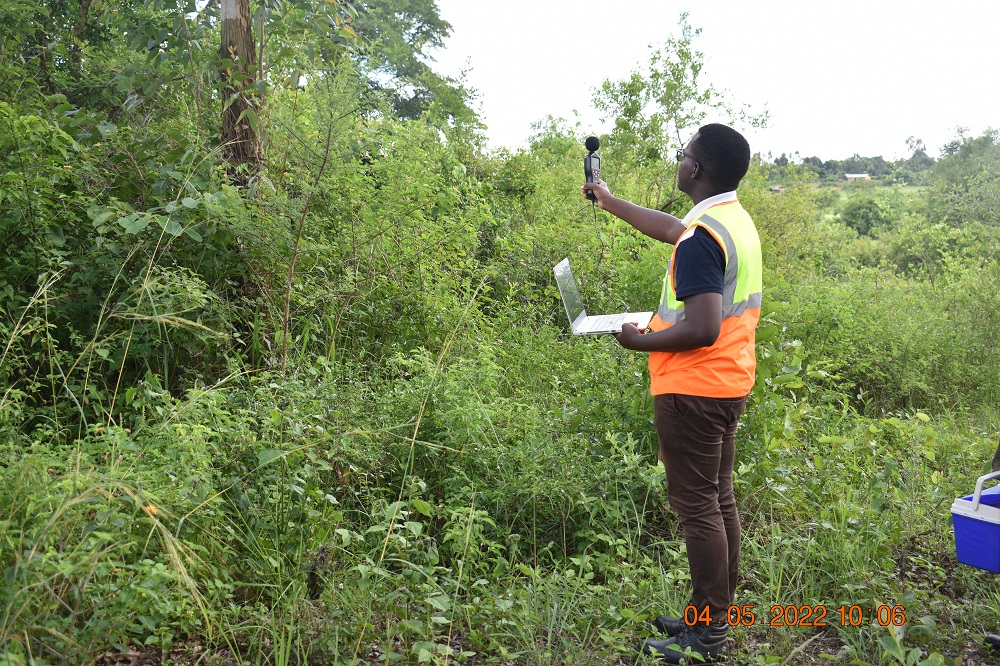With over 10 years of air quality experience, Gissat is expertly placed to meet all possible air quality needs. Gissat Air Quality Team has extensive air quality experience and offers a comprehensive range of air quality management services, all provided in accordance with the latest legislative requirements and guidelines.
We undertake air quality assessments and provide solutions for a wide range of public and private clients, including the national government, investors and industry.
Our air quality services cover the following;
· Air Quality Modelling and Risk Assessment
· Dispersion modelling
· Ambient Air Quality Monitoring
· Facility Air Quality Monitoring
· Air Permitting
· Expert Advice and Expert Witness Support
· Assessments and Monitoring of odour, Dust and Bioaerosols
· Air Quality Management Plans (e.g dust, NOx)
· Development of Air Quality Quality Guidance
· Emissions and Green House Gas (GHG) Inventories
· Emissions Data and Regulatory Compliance Analysis
· Indoor Air Quality Assessments
· Local Air Quality Management
· Evaluations of Best Available Techniques (BAT)
· Stack Height Assessments
· Air Compliance Strategy Development
· Environmental Compliance and Environmental Management System Auditing
AIR QUALITY MODELLING AND ASSESSMENTS
Gissat offers a wide range of air quality services including air quality modelling, dispersion modelling, air pollution control system design, waste minimization, air quality monitoring, New Source review permitting, compliance strategy development, emissions inventory development, emissions inventory development, and a number of other specialities within the air quality/air pollution control arena. Our staff has expertise experience in performing air quality-related projects.
AIR PERMITTING
Gissat offers extensive experience and technical expertise in preparing air permit applications for numerous industries including chemical, pulp and paper, electric power generation, wood products and general manufacturing. We provide air permitting services ranging from consultation an oversight to complex turn key permit applications. We have developed permitting strategies for a wide variety of projects and typically work closely with our clients to develop applications and negotiate the most favourable permit conditions possible.
Our staff actively monitors regulatory changes and has a thorough understanding of the way permit applications are reviewed by regulatory agencies.
Our experience in air quality permitting includes;
· New source review permitting for non-attainment areas.
· Permitting feasibility studies and sensitivity analyses.
· Ecological Impact Assessments.
· Transportation facility applications and modelling analyses.
· Emission Estimates.
· Visibility Impact Assessments
· Air Dispersion modelling
· Emission netting analyses
· Control technology evaluations
AIR QUALITY IMPACT EVALUATIONS
Gissat offers a wide range of ambient air quality evaluations and dispersion modelling service. Generally, these evaluations are performed using dispersion modelling to determining the impact of source emissions on ambient air quality levels or to provide data for risk assessments. These analyses are usually a key aspect of regulatory air permitting decision-making. The following are some of the models that we use most frequently;
· AERMOD
· RTDM Model
· CTDMPLUS Model
· COMPLEX I Model
· CALPUFF Refined/Screening
· ISCST3/LT3 Models
· SCREEN3 Model
· VISCREEN2 Model
· PLUVUE II
· CAL3QHC2 (Transportation model)
· PAL2 (Transportation model)
· MOBILE5A (Emissions model)
· Dispersion Modelling
COMPLIANCE SERVICES
Air permits and other air quality-related regulations often impose routing and non-routine compliance obligations with which Gissat specializes. In addition to such regulatory obligations, Gissat also provides a variety of compliance-related services designed to assist clients in determining compliance status and to streamline monitoring and reporting requirements to reduce compliance costs and potential liability. Compliance-related services include;
· Annual air emissions inventories and Toxic Release Invetories (TRIs)
· Source measurements (“stack testing”)
· Compliance audits
· Historical Permitting reviews
· Database development/management
· Monitoring protocols and strategies
· Combustion optimization
· Continuous emissions monitoring design and programming
· On-site meteorological data processing
· Semi-annual progress reports
AIR QUALITY MEASUREMENTS FOR PROCESS OPTIMIZATION AND REGULATORY COMPLIANCE
Gissat has been involved in broad range of testing programs to establish emission rates of various air pollutants and to demonstrate compliance with different types of applicable emission standards and permit limitations. Test programs include compliance testing for recovery boilers, evaluating emissions from burning alternative fuels in power boilers, evaluating process emissions for pollution reduction, screening hazardous air pollutant (HAP) emissions for control strategy decisions, and implementing Leak Detection and Repair (LDAR) programs.
Our experience with measurement programs allows us to design a testing protocol specific to the needs of a facility. Gissat has expertise in a variety of continuous measurement techniques capable of tracking emission levels and in integrated batch sampling methods for quantification of very low concentrations. From our broad range of measurement options, we can provide the specific technology your facility requires for process optimization, demonstration of compliance, or pollution reduction strategy development.
Gissat has measurement capabilities for;
· Halogenated compounds
· TRS
· Non-hazardous organic compounds
· Criteria pollutants (e.g. NOx, SO2, PM)
· Metals
· State regulated toxic air pollutants
· Hazardous air pollutants
GREENHOUSE GASES
Gissat has extensive expertise in managing large multi-faceted carbon management projects, ranging from the preparation of greenhouse gases (GHG) emission inventories to the preparation of Greenhouse Gases life cycle analyses. Gissat has prepared organization-wide and facility specific GHG emission inventories for the six intentionally-recognized, greenhouse gases (carbon dioxide; CO2, Methane; CH4, nitrous oxide; N2O, Hydrofluorocarbons; HFCs, perfluorocarbons; PFCs, and sulphur hexafluoride; SF6) on a compound-specific and total carbon equivalent basis.




